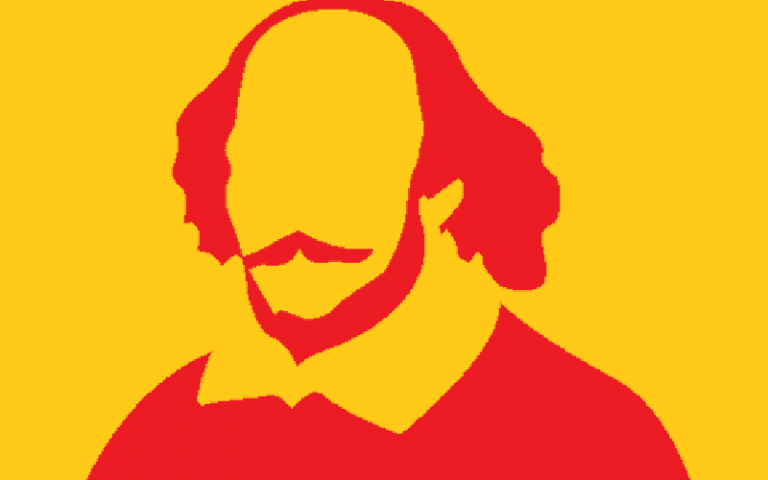Shakespeare and the Hispanic
15 October 2024, 5:00 pm–7:00 pm

Prof Jonathan Sell (Alcalá) and Prof Luis Conejero (Extremedura) will join Prof Alexander Samson (UCL, SELCS) to give papers related to Shakespeare and the Hispanic.
This event is free.
Event Information
Open to
- All
Availability
- Yes
Cost
- Free
Organiser
-
Early Modern Exchanges
Location
-
IAS ForumG17, ground floor, South WingUCL, Gower St, LondonWC1E 6BTUnited Kingdom
The bull-feast, the bard, and the dangers of enthusiasm: William Shirley on David Garrick (1758)
Jonathan P. A. Sell (University of Alcalá)
In 1758, at the height of the Seven Years War, when Anglo-French hostility raged on battlefield and page alike, London and Lisbon merchant and minor playwright William Shirley switched Francophobia for Hispanophobia and introduced the bullfight into his criticism of David Garrick’s acting. Although Shirley’s essay was fuelled by personal animus towards the controversial actor-manager, the bullfighting analogy throws interesting light on the literary enthusiasm which nourished growing bardolatry but also had unsettling social and political implications, epitomised in the emerging cult of celebrity. Shirley’s historically apposite comparison of Garrick with the bullfighter casts Spain as the despotic counter-image of a polite Britain alarmingly exposed to the horns of popular taste.
From Kyd to Shakespeare: Exploring Religious Intertextuality through John of Gaunt’s Iberian Odyssey
Luis Conejero (University of Extremedura)
The portrayal of John of Gaunt by Shakespeare is not isolated. Rather, it may find its roots in the flourishing depiction of this mediaeval ruler on the London stage following the defeat of the Spanish Armada. This presence is evidenced not only in Shakespeare’s Richard II but also in Kyd’s The Spanish Tragedy or in lost plays like Conquest of Spain by John of Gaunt, as recorded in Henslowe’s Diary. Indeed, Gaunt’s involvement in the Iberian campaigns is depicted in literature as a justifiable exercise of military power, shaping his character as a heroic figure. Moving between history and literature, this paper examines Gaunt’s Spanish odyssey and how his claim to the crown of Castile was perceived by English society, thus exploring themes of nationalism and religion. In the process, it uncovers how a character with deep Spanish ties could be transformed to embody ideas closer to the Renaissance and a patriotic English heroism on the Elizabethan stage.
Hispanic Orientalisms: World-making and the Global in England and Spain, 1580 – 1640
Alexander Samson (UCL)
England’s early colonial endeavours took inspiration from the example of Spain, starting with translation, before literally staging scenes of colonial encounter and imperial struggle. The Islamic World and contact with others in Africa, Asia and the Americas frequently reached England through Spain. Departing from an exploration of some of the possible Iberian sources of knowledge for this wider world, this paper reflects on how representations of global geography constituted an early modern brand of Hispanic Orientalism. From the pastoral to romances of chivalry and parodic counter romance (the imperial struggle with the Turk animating Don Quixote), poetry both epic and domestic, and scientific knowledge, from Dioscorides to cartography, a series of texts negotiated a changing world in which the balance of power seesawed between and amongst different European and extra-European powers as the relative importance of religion, race and culture came into focus. Views about intermarriage, race, power, and identity foundered on the rocks of endogamous/exogamous practices bound up with family politics, on one level dynasticism and on another domestic drama or tragedy. To assimilate, disavow or erase were three possible responses, but often representations combined all three and their instability speaks to an irreducible residue that continued the haunt England’s global ambitious which continued to be forged in relation to the Hispanic well into the 18th century and beyond.
This event is organised by UCL Early Modern Exchanges, which is part of UCL's Institute of Advanced Studies. Register to attend at https://hispanic_shakespeare.eventbrite.co.uk
About the Speakers
Jonathan Patrick Sell
Professor of English Literature at University of Alcalá
Working on the Spanish background to some of Shakespeare's plays and on the relationship between eighteenth-century religious discourse and Shakespeare criticism.
More about Jonathan Patrick SellLuis Javier Conejero Magro
Lecturer at Universidad de Extremadura
Currently he is working on stylistics and intertextuality, with special attention to Shakespeare's plays.
More about Luis Javier Conejero MagroAlexander Samson
Professor of Early Modern Studies at UCL, SELCS
He has edited volumes on The Spanish Match: Prince Charles’s Journey to Madrid, 1623 (Ashgate, 2006); A Companion to Lope de Vega (Tamesis, 2008) with Jonathan Thacker; Locus Amoenus: Gardens and Horitculture in the Renaissance, a monographic Special Issue of Renaisance Studies (Wily-Blackwell, 2012); and Philip IV and the World of Spain's Rey Planet with Stephen Hart (Boydell and Brewer, 2022). His book Mary and Philip: the Marriage of Tudor England and Habsburg Spain was published by Manchester University Press. Editions of Lope de Vega’s Lo fingido verdadero and James Mabbe’s Exemplary Novels are forthcoming.
More about Alexander Samson Close
Close

